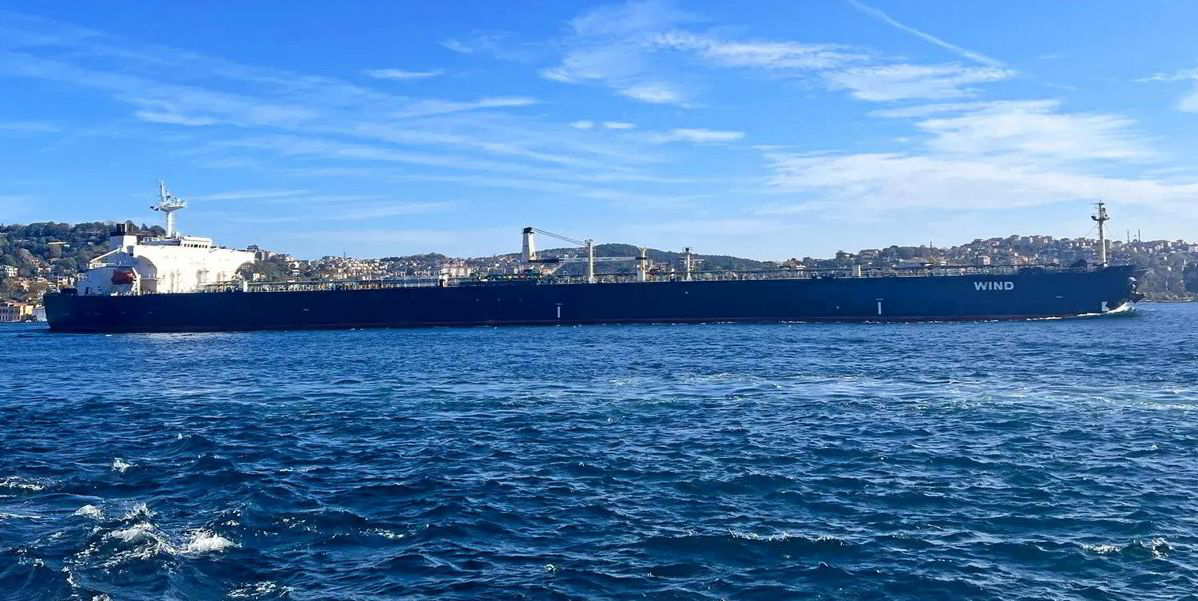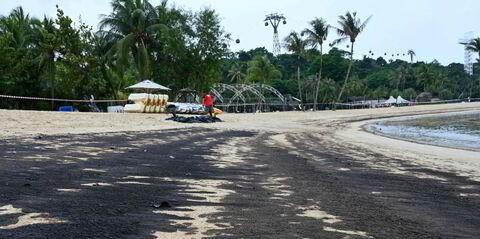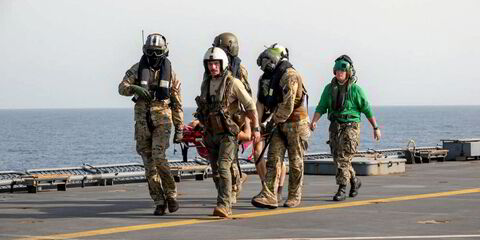A Greek-controlled bulker reported a nearby missile strike off the coast of Yemen on Thursday after a suspicious approach from another vessel.
The missile landed off the port side of the 50,800-dwt Yannis (built 2009) some 98 nautical miles (182 km) south of the port city of Hodeidah, the Royal Navy’s UK Maritime Trade Operations said.
All crew members were safe and no damage was reported. The ship was continuing to its next port of call, UKMTO said.
Security firm Ambrey said the vessel had been approached earlier. Previous attacks have been preceded by an approach from vessels in apparent attempts at identification.
Last month, the European Union naval force Aspides warned that the presence of skiffs harassing merchant ships in the Red Sea also indicated a potential resurgence of vessels being boarded.
This is the second time within a month that Yemen’s Houthi rebels targeted a ship managed by Athens-based Eastern Mediterranean Maritime (Eastmed).
The first time they did so, on 29 April, the Houthis claimed that Eastmed’s 60,400-dwt Cyclades (built 2017) was calling on Israel — the trade of which the Yemeni rebels seek to disrupt in retaliation against Israel’s crackdown on Gaza.
In a statement issued on 24 May to claim responsibility for the attack on the Yannis, the Houthis said they singled out Eastmed because three of the company's ships allegedly docked at “occupied Palestinian ports” on 4 and 5 May.
Another Greek-controlled ship, a tanker, was damaged in a missile strike in the Red Sea on 18 May.
The 105,400-dwt Wind (built 2003) was 76 nautical miles (140 km) northwest of Hodeidah, Yemen, when it reported a fire and damage to its steering gear.
The aframax is listed under the management of Athens’ Adriatic Tankers Shipping and vessel trackers showed it carrying fuel oil from Novorossiysk in Russia to China.
Some experts, however, suggested that the Houthis may have attacked the Wind in the mistaken belief that it was linked to the US.
On Thursday the US shot down four drones over Yemen, according to Central Command, which coordinates American armed forces in the region.
“It was determined these systems presented an imminent threat to US, coalition forces and merchant vessels in the region,” the command said in a statement.
Read more
- Zim ponders fate of 35 chartered container ships in uncertain market
- ‘Don’t ask us, ask the Houthis’: Zim chief addresses shipping’s biggest question
- Shipping under threat from geopolitical strife and tech-backed attacks
- Poten & Partners sees boost for tankers should Sudan security improve
- Bahri VLCC fixtures show shift in Saudi Arabian crude flows away from Houthi hotspot




